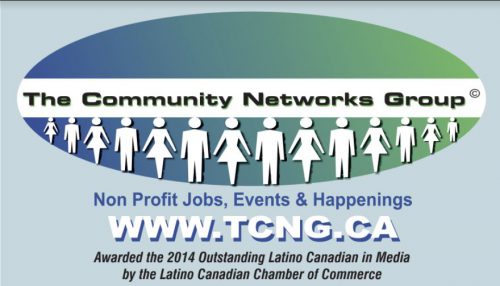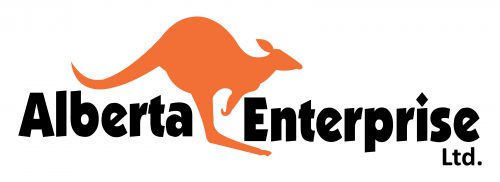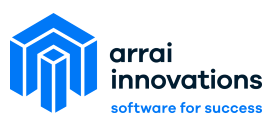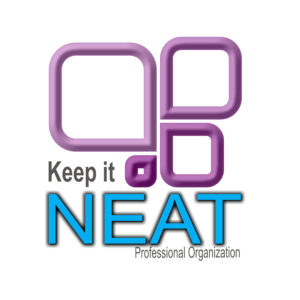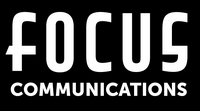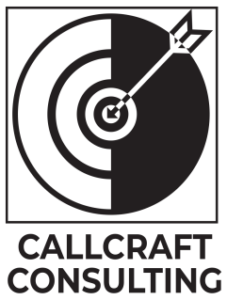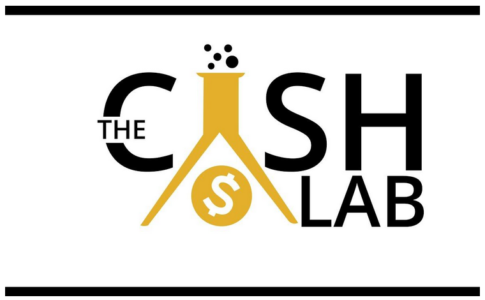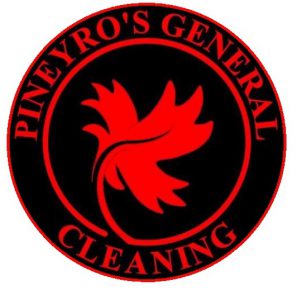Wayfinders Meetup Monday Dec 17
Wayfinders Business Co-operative Meetup Monday, 6 PM December 17th.
Ricky’s All Day Grill 10940 Jasper Ave
We’ll explore what a ‘business ecosystem’ looks like and how it can serve small businesses. A business ecosystem, as we are using the term, refers to a dynamic network of local independent businesses that help each other by doing business transactions routinely, making referrals, forming collaborative teams as needed, and more. Its a community of trust in which entrepreneurs support one another to do their best work.
For event details, see our Meetup page.
https://www.meetup.com/Wayfinders-Business-Cooperative/events/256594871/
Understanding How to Use AI
From strategy+business
Adam Lai and Matt Kuperholz
“An AI-enabled future might sound impossibly Jetsons-like, but the time when AI can respond with better, faster, more accurate decision making than human beings is already here. Want to use powerful insights from the customer-facing experience of your entire sales force? AI can help do that. Want to harness that information to successfully cross-sell, upsell, make personalized recommendations, reliably predict customer needs, and increase the overall stickiness of your customer relationships? AI can help do that, too.”https://www.strategy-business.com/blog/Five-Standards-for-Responsible-AI-Use?gko=a2f1c&utm_source=itw&utm_medium=20181212&utm_campaign=resp
Wayfinders Festive Gathering
You’re Invited
You’re Invited to our Festive Season Gathering
Thursday, December 13th
- 6 PM to 8 PM
- At Ricky’s All Day Grill
- 109 Street & Jasper Avenue, Edmonton, AB
Let’s get to know one another a little better!
Celebrate the spirit of community!
Lots of free parking & close to LRT
Bottom Up Success

By Randal Adcock
The Journey | Sorting out the causes of business success/failure in so far as Small & Medium Sized Enterprises go, is not easy. Whether you’re looking into the reasons for success or failure, the causes are of the same sort. If you can address the problems leading to failure then you have a success. If you fail to address the causes of success then you are likely to fail. One thing to address up front is attitude.
Positive Attitude | Your attitude is most important for success. Studies in psychology show that a good degree of optimism makes you more creative. There is no success without first believing in your success. Think back on all your successes to date. These are your assets going forward. You are a goal-oriented problem-solver!
Framing | Rather than asking “how do I avoid failure?” ask “how do I succeed?”. This
may be true even when facing impending failure. Doubts have a way of shutting down
creative problem-solving. Don’t be overwhelmed or you’ll face a tendency to give up.
A bit of self-deception can be constructive. No matter what opportunities and challenges
you face, you will first face them with familiar lenses. We need to develop constructive
habits, making a conscious effort to be a bit more positive when you wake up in the
morning and prepare for your day. Last thing at night, remind yourself of how grateful you
are for the blessings of the day. Even if you had a bad day, focus on the positive and
you’ll get better at it. Attitude frames everything.
Capacities | It is also important to distribute your assets, efforts/time in a way that
sufficiently covers all your business requirements. The word sufficient is key; you
don’t have to use some mathematical optimization algorithm to get the distribution
perfect. You will never get it perfect. You just need to cover requirements sufficiently to
get the job done. What does the job need?
Essentials | Have enough cash in the bank to cover expenses; enough paying customers; set prices high enough to cover product costs plus admin costs; hire enough human resources to get the work done; pay them well enough to keep them around long as they’re needed (and back again); make a product that people want at a price they’re prepared to pay; share your vision sufficiently with your people so they can work with you effectively; respect people and the fact that they all have something different to offer; build lasting and trusting relationships so your transactions become easy and automatic; explore new options routinely and remain somewhat open-minded and inquisitive.
Learning | Learning takes place in goal-plan-action-review cycles. The loop involves continuous goal-setting, planning, action, results, and a review that produces lessons for the next round. Take the time to prepare a solid business plan, implement it, track outcomes and repeat the process in a positive feedback loop of continuous improvement – from bottom to the top.
Business Plan | The plan is key part of your learning loop and is often overlooked. Some research shows that a business plan has questionable value for a brand new business because the plan will likely change quite a bit at fist. But you need to plan. Writing the plan forces you to think things through and minimize the things you might miss. Understanding comes at the point of articulation. Keep in mind that not all entrepreneurs are the same. Some naturally learn more in the action part of the cycle. This is okay as long as the failures along the way are bite-sized and manageable. Prepare a sufficiently comprehensive yet detailed plan to get all your team onboard, including the bank and investors. Plan sections: mission, vision, goals and strategy; market research, products, operations, human resources and finance.
Scaling | Many businesses fail when they try to grow to fast. Others avoid trying because scaling up is different, and sometimes more risky, than getting established. In some industries, however, competition demands that you reach a certain size and economy of scale in order to offer competitive prices and product range. You may need to grow. However, as your business grows you need to scale your plans/processes in proportion to requirements. It isn’t just about increasing output with your existing setup. Build a set of tools that make sense for the level of complexity you need to manage. It starts with foundations. Often, getting a bookkeeper is an early first step in small business. You learn how to assign tasks to others. Then maybe outsource marketing, etc. To really scale up you need to hire managers and learn to let go of everyday details.
Failure & Success | The causes of business success and failure are interdependent. One could use the Five+Why approach. Ask ‘why?’ to at least five consecutive answers to the initial question of “why did the initiative fail?”… For example; there’s not enough cash coming in: 1) Why? A: Not enough customers. 2) Why? A: Not enough promotion. 3) Why? A: Not enough cash to purchase promotion. 4) Why? A: Didn’t invest enough. 5) Why? A: Investors were not confident. 6) Why? A: Didn’t have a detailed business plan. Solution — work on your plan!
As for the study of success, it may not be enough to look at a business success and say “they didn’t make any mistakes”. What did they actually do when they faced opportunities and when they faced threats?
Bottom Up | Sorting out the causes of business success and failure is not easy.
Address the common problems leading to failure then you probably have a success. Fail to address the causes of success, then you are likely to fail. Remind yourself of this basic understanding, consult trusted opinion-makers, adjust your plans accordingly, and you will propel upward your chances of success! ©
About: Randal Adcock is the co-founder & chair of Wayfinders Business Cooperative ©
KING’S UNIVERSITY & WAYFINDERS COOPERATIVE COLLABORATION.

KING’S UNIVERSITY > FACULTY of BUSINESS | You will be pleased to know that soon, we’ll be involved with King’s University Faculty of Business and their Community Engaged Research https://www.kingsu.ca/programs/additional-academics/cer (CER) Program. This program builds upon the research capacities of community partners by supporting important initiatives – in this case, Wayfinders Business Cooperative.
Through CER + 3 students assigned to us, we’ll be exploring key areas, such as sustainability of cooperatives; best practices of cooperatives, best practices of emerging platform cooperatives (such as ourselves) and our constantly evolving business model/plan. This initiative starts in early 2019; of course, we’ll be sharing findings as it goes along. We thank our friend and colleague David Long, faculty at King’s University for his interest in our endeavour; the CER Program which he leads & the people at Faculty of Business. – LCA
Online Vendors Workshop
Welcome Wayfinders and Friends:
This is a workshop to work through how to set up a vendor account and space on the Wayfinders Commerce website and to share ideas on how to improve the site.
Come if you want to explore the feasibility of setting up a vendor account. Its good for selling services as well as products, downloadable products, or booking time (e.g. coaching, lessons) and meeting space. In fact, we’re exploring ways to turn it into a supply chain management system with a smart search engine.
Bring a friend who may be interested in selling online.
Come if you’re just curious. The first part will be a general orientation.
London Drugs has set up a workshop room that is open to the public, with a large screen TV and chairs with desktops so you can use your device. The room is booked. We can manage up 16 people.
An RSVP to this invitation would be appreciated.
This should be quite exciting!
Randal
Our trial commerce site:
https://test.wayfindersbusinesscooperative.com/commerce/
Meetup Monday
Meetup Monday, November 19th
Ricky’s All Day Grill
Jasper Avenue and 109 Street
6 PM to 7:30 PM
Lots of free parking space
What happens:
- Updates
- Sharing
- Networking
- Learning
We want to know what you want from a business co-operative:
- Collective buying power
- Online services – blogs, communities of practice
- Cloud file storage, project management and collaboration
- Online commerce platform
- Software as a Service
- Live Face to Face Local Chapter Clubs
- Democratic governance
How important are these to you?
What are we missing?
More on Meetup and to register:
Journey to Success: Women in Business with Arti Mittal
Journey to Success: Women in Business
Arti Mittal
Nov. 16, 2018, 10:00 to 12:00 noon at The Business Link, Suite #500, 10150-100 St.
Downtown Edmonton – admission $5.00 donation.
Join us for an engaging conversation with Arti Mittal, owner of Lola’s Fashions. Loala’s Fashions is a unique, one of a kind boutique in Edmonton excelling in superb customer service and treating our fashionistas like real divas. Arti loves fashion and worked in a number of retail stores before opening her own.
CHALLENGES | After immigrating to Canada over 30 years ago, Arti’s hard work, dedication, perseverance and visionary commitment as an entrepreneur have been essential elements for her professional pathways to success. She will share with us her tips, pointers and solid advise not only for women entrepreneurs but for men as well, no matter where you come from.
Please RSVP by Nov. 15, 2018 to: leocamposa@gmail.com (or) Tel: 780.474.6058. SPONSORED by: Wayfinders Business Cooperative©
Must Read: How the Enlightenment Ends
How the Enlightenment Ends
From The Atlantic
Henry A. Kissinger
more:
https://www.theatlantic.com/magazine/archive/2018/06/henry-kissinger-ai-could-mean-the-end-of-human-history/559124/











